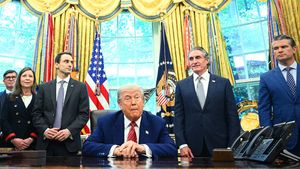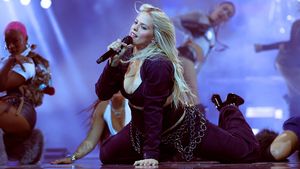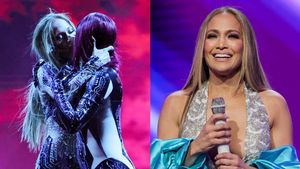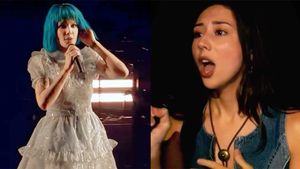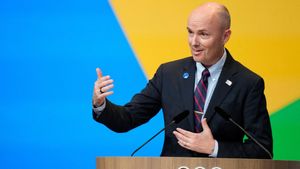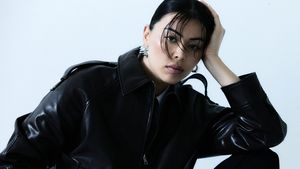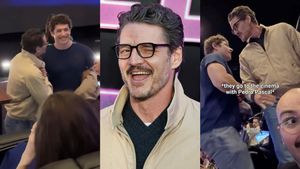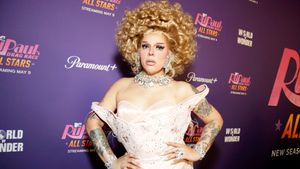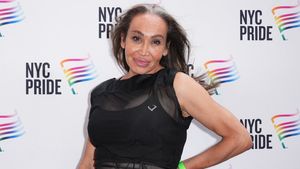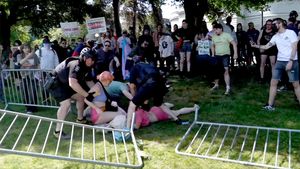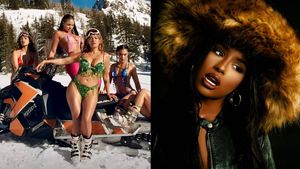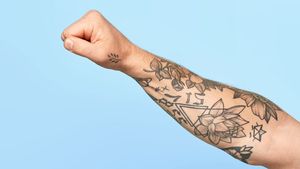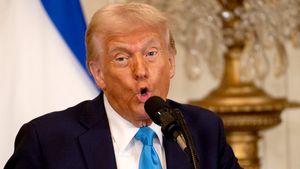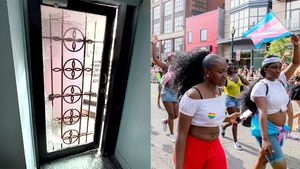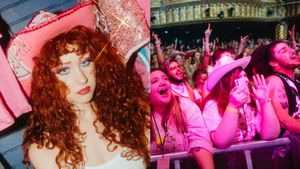Eurocentric beauty standards continue to dominate billboards, television, movies, etc. and we're told over and over again that thin, muscular, and white is what is beautiful. One model is calling out the industry trying to force him into a box, one he couldn't possibly fit in.
While working as an assistant for an editorial shoot in 2016, Chufue Yang was approached by a stylist on set to wear something she brought. Yang was photographed and when his photos were used in the editorial spread in a Chicago-based magazine, he began to see a modeling career as a viable option and promptly signed with Ford Models.
He was excited at first, he told Dazed Magazine. "Like any other queer person that grew up facing internalized racism and homophobia, I was really unsure of what it meant to be queer and Hmong simultaneously. Being comfortable with myself seemed like a goal I’d never be able to reach, until modeling came into the picture.”
But Yang realized that his agency seemed to be trying to get him to fit into the mold of their typical, tall, muscular white models. Standing at 5'10", his agency bumped up his height to 6'0 and at one point removed his race from his comp card altogether.
“It’s these little white lies that ultimately chip away at your identity,” Yang explained. "Some narratives are changed by others within the industry to make them seem more interesting or 'marketable.'"
"When I was modeling, I never really felt 100 percent comfortable on certain sets. I always felt like I had to portray a certain version of myself in order to be liked or that I had to overcompensate in some instances because I didn’t fit the cookie cutter mold of a 'model.'"
The tipping point came when he was misidentified as Mongolian in a New Face division spread. Yang, who is Hmong, didn't feel comfortable coming to the agency with his discomfort so he posted about it on Instagram.
"Although it could’ve been a simple mistake, being misidentified ethnically is something that not only me, but a lot of Asian Americans experience daily," said Yang. "I made an Instagram post expressing those feelings and when my agent saw it, they wanted me to take it down because they didn’t want to ruin the relationship they had with models.com. This was the first time that my voice was silenced after being signed and unfortunately, I gave in."
Yang had a hard time bouncing back after that. "They would send me to a few castings here and there, but Chicago clients just aren’t looking for people that look like me. It seems as though my height, mono-lids, and black hair didn’t make the cut, because the emails about jobs started to decrease throughout my time being signed. Not getting booked for things definitely started to take a toll on how I viewed my self-worth. This was a very hard time for me mentally and emotionally."
"I deactivated all my social media and needed to disassociate myself from modeling because I felt as if I didn’t have control over my body anymore. It got to the point where I just shaved my head and dyed it a different color without telling my agents. I think my agents probably felt that I wasn’t committed to my career anymore which wasn’t the case at all."
Yang doesn't exactly blame his agency, but the industry for being so narrow-minded with their beauty standards.
"I’m the first QPOC that they’ve ever signed onto their men’s board and instead of marketing me for me, I felt like they wanted me to fit me into a mold. Ultimately, the blame isn’t on my previous agents or my previous agency, but on the industry and myself for not having a stronger stance on my values, voice, and identity."
For his own peace of mind, Yang has decided to move on from modeling and go into teaching but if there's one thing he's learned from this experience, it's to speak up or nothing will change.
"Don’t be afraid to use your voice – it’s the most powerful thing you have. Learn to pick and choose your battles though, some situations aren’t worth your energy. We should also give our attention to platforms on Instagram like @moremodelsofcolor. They do a great job of representing underrepresented models that are in the industry and calling out unjust castings when needed."










































































